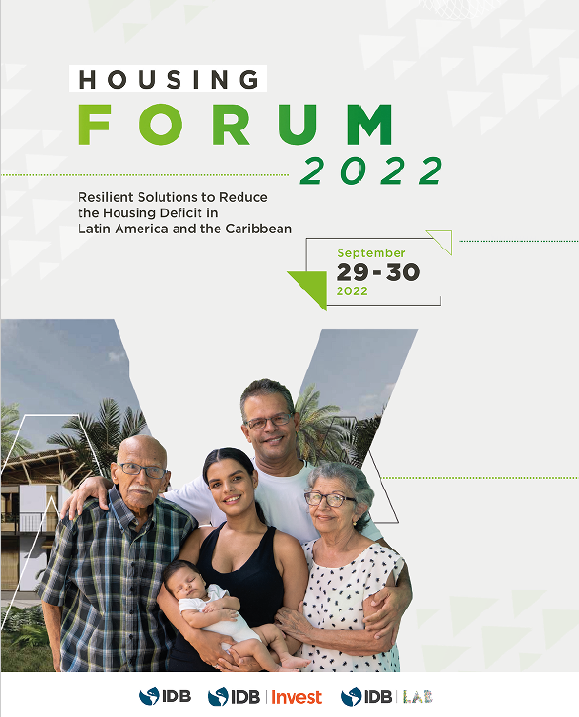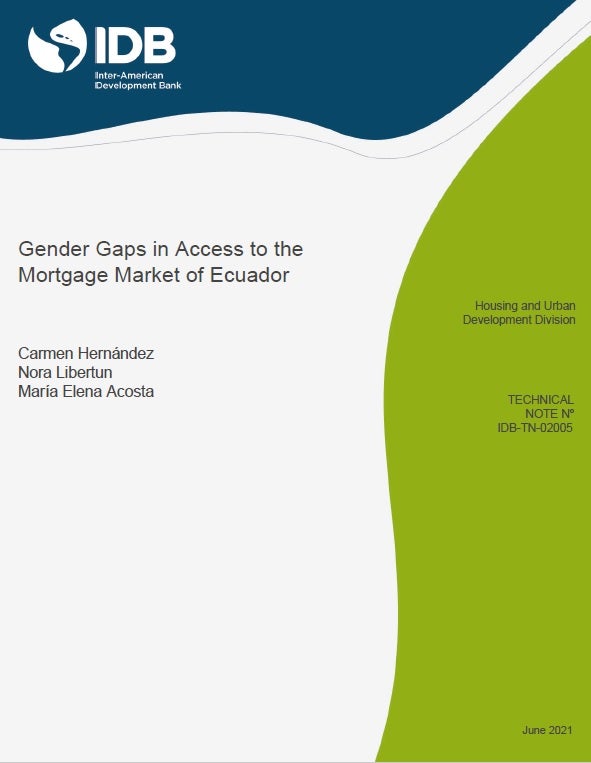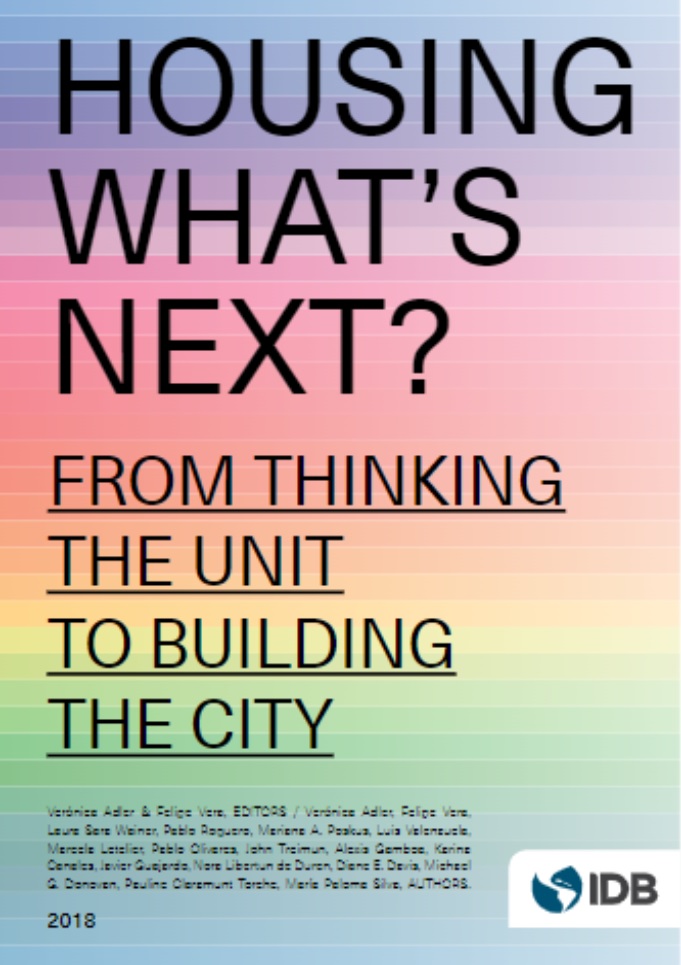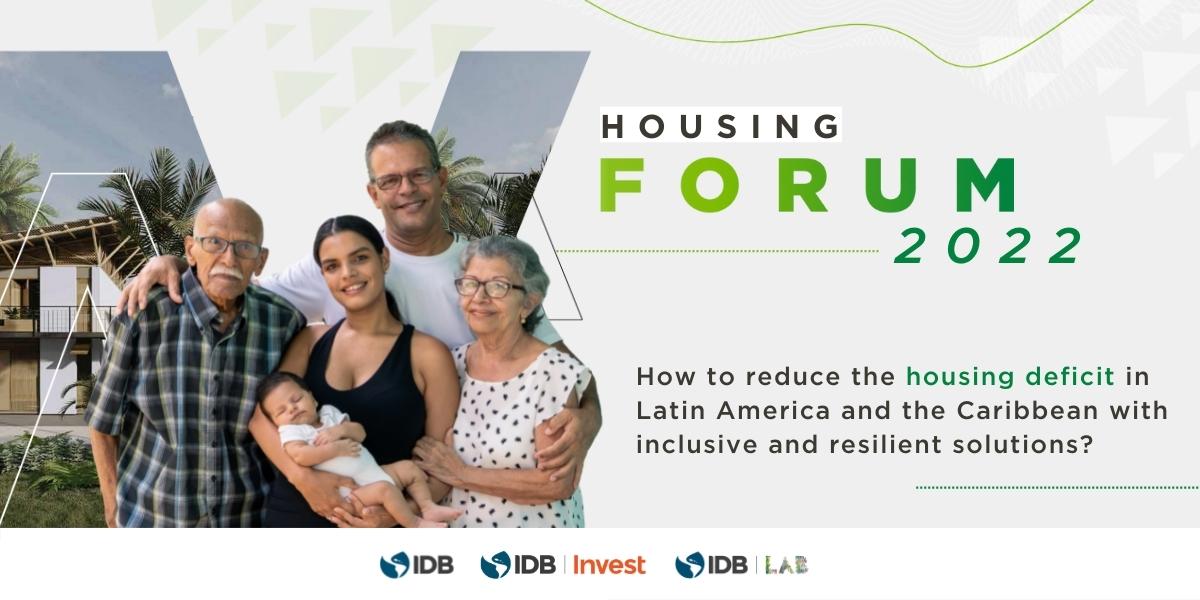Este artículo está también disponible en / This post is also available in: Spanish
In Latin America and the Caribbean (LAC), the housing demand is greater than the supply of decent housing. This is what is known as housing deficit. This deficit can be both quantitative and qualitative. The former measures the need of households for new housing. The qualitative deficit, on the other hand, is made up of housing units in poor condition and/or those that need access to basic services such as drinking water, sewage, etc.
It is estimated that the housing deficit affects almost half of the households in LAC. However, this data is prior to the COVID-19 pandemic, which impoverished the economies of the most vulnerable populations, so it is possible that the housing gap has increased even more.
The IDB Group, integrated by the Inter-American Development Bank (IDB), IDB Invest, and IDB Lab, has spent decades leading the provision of solutions that make it possible to reduce the housing deficit in the region. In the current context of economic recovery, our role is more necessary than ever to achieve this goal. For this reason, the IDB Group held the 2022 Housing Forum on September 29th and 30th, 2022, which addressed the main solutions for reducing the housing deficit, considering the objectives of resilience, adaptation to climate change and inclusion contained in the IDB Vision 2025. Keep reading so you do not miss any details!
IDB Group’s Housing Forum 2022
This series of eight blogs aims to share with all interested readers, both from LAC and from the rest of the world, the most innovative solutions from the public and private sectors to reduce the housing deficit in the region. The IDB Group Housing Forum consisted of 7 panels, which addressed the following thematic areas: (click over each title to access a monographic panel on each topic)
PANEL 1: Incentives to address the housing deficit
Currently, new subsidy operations are being explored that promote the accessibility and affordability of housing for purchase and for rent. These should be resilient to climate change for vulnerable populations, linked to transport services, employment, services, equipment, and infrastructure. Likewise, they should focus on attention to the qualitative deficit through improvements, extensions and adaptations of housing and regularization of the land.
.
PANEL 2: Regulatory frameworks, institutional arrangements and technological platforms that reduce the housing backlog
The housing sector needs the introduction of new legal and regulatory frameworks, policies, urban development plans and institutional arrangements that allow it to attract private capital and guarantee sustainable investments. In the same way, technological platforms are needed that promote agile decision-making, overcome information asymmetries, reduce entry barriers, and promote transparency in the sector, both at the market level and in the implementation of policies and the use of public resources.
.
PANEL 3: Access to financing and climate funds in housing solutions
Increasing the production of resilient housing and adapting existing housing to climate change requires a high volume of financing, an especially costly task for developing countries and particularly for LAC, with its high housing deficit. In this context, it is necessary to access international funds aimed at reducing the risk for investors and promoting the mobilization of private capital, through financing instruments such as green bonds, guarantees, concessional loans, subsidies, and donations, to scale up investment programs. mitigation and adaptation to climate change in the housing sector.
.
PANEL 4: Innovations in informal settlements and technology-based business models
Innovation in the design and architecture of housing is necessary, through construction systems, materials and technologies that allow reducing the costs of housing solutions. These solutions must also facilitate climate change mitigation and adaptation. In parallel, it is necessary to develop strategies for the coordination and alignment of interests of the different key players in the housing value chain, including contractors, architects, engineers, suppliers and installers, and producers of materials, equipment, and technologies.
.
PANEL 5: Solutions to the housing deficit through sustainable housing of social interest
To reduce the housing deficit, the role of the construction industry is vital in addressing its challenges, aligned with urban planning and housing in terms of affordable land management for human settlements. Theref1ore, a strategy for integrating sustainable interventions in affordable housing must be conceptualized. The participation of housing developers is also needed in the strategies implemented by governments to address the housing deficit in LAC.
.
PANEL 6: Innovation in financial products that facilitate closing the housing gap
Banks, microfinance institutions and fintechs are required to channel new financing. These should be earmarked for construction credit, credit for the purchase of new and used housing, and micro-financing for housing improvement that facilitate access to credit for housing solutions in LAC. Likewise, it is necessary to establish strategies for the expansion of public and private funds aimed at supporting sustainable and resilient housing initiatives with a gender, diversity, and environmental sustainability approach.
.
PANEL 7: Attending the housing deficit of the vulnerable population with an emphasis on gender equity and diversity
Innovation is needed in resilient housing solutions that mitigate and adapt to climate change with an emphasis on gender equity and diversity. In particular, those that consider the needs of households headed by women, LGBTQ+ people, people with disabilities, afro-descendants and indigenous peoples. This is applicable for construction solutions, financing, subsidies and policy implementation, both from the public and private sectors.
.
Related publications:





Leave a Reply